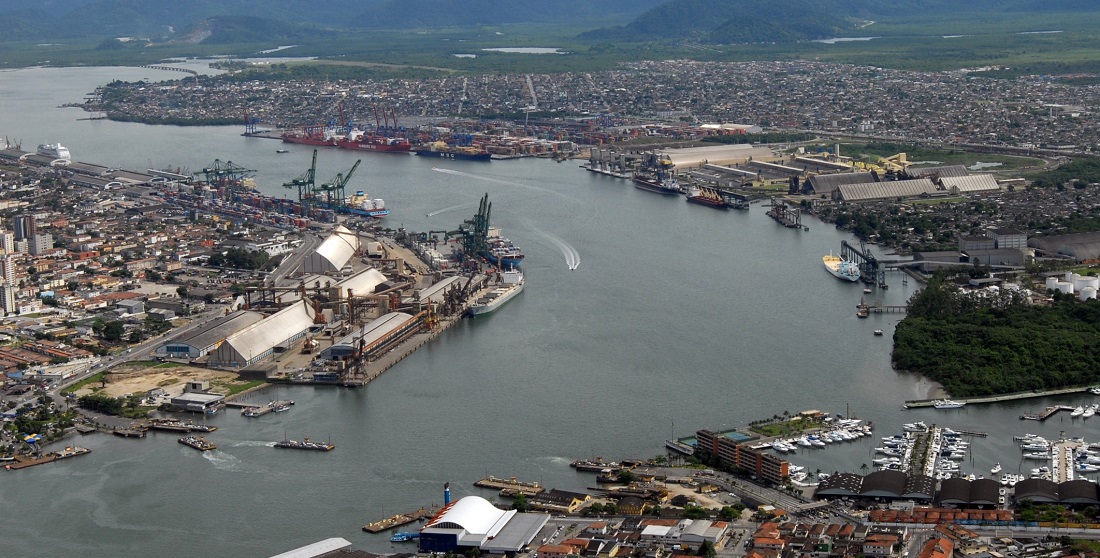
Port of Santos: gov’t studies giving more leeway to terminals and shipowners in auction
Aug, 02, 2022 Posted by Gabriel MalheirosWeek 202231
The federal government is evaluating the possibility of changing the rule that limits the participation of port terminals and shipowners in the privatization auction of the Port of Santos. The Ministry of Infrastructure confirmed the information to Estadão/Broadcast.
The current auction proposal, which was submitted to public consultation at the beginning of the year, defines that companies that own port terminals, for example, could participate in the tender as part of a consortium with a maximum individual participation share of 15% or up to 40% in group. The rule was designed to avoid abuse of economic power in the future private management of the Port of Santos.
According to the ministry, the government received many comments pertaining to the matter during the project’s external consultation phase. There were ideas to increase percentages, abolish the regulation, and strengthen the limitation, thereby removing any flexibility in these players’ participation in the Port of Santos auction.
Last week, the government included the Port of Santos in the Investment Partnership Program and the National Privatization Program (PND).
Despite the tight schedule, the government wants to conclude the privatization of the Port of Santos later this year, which is seen with skepticism in the market. In an interview with Estadão/Broadcast, the Secretary of Development, Planning, and Partnerships at the Ministry of Infrastructure, Rafael Furtado, said he believed the auction proposal for the Port of Santos would be presented to the Federal Court of Accounts (TCU) in mid-August.
After that, the expectation is to have the public notice published in October, which will depend on TCU issuing a decision in less than three months – a period considered narrow by the market, given the time TCU has taken to analyze previous privatization cases.
The auction for the port of Santos foresees investments of 18.5 billion in improvement, expansion, and maintenance projects that the future manager must finance. With the tender, the current port manager, the state-owned Santos Port Authority (SPA, formerly Codesp), will be fully privatized and will not return to the Federation. Furthermore, the physical areas of the port will be granted to this same company for 35 years, without extension.
At the Ministry of Infrastructure, the expectation is that there will be an intense dispute over the asset, making it the biggest privatization act in the Jair Bolsonaro government after Eletrobras. The government has already presented the proposal to investors from countries such as the United States, France, the United Arab Emirates, and Italy, in addition to having held a public hearing in Brazil.
“Given that, during the public consultation process, several contributions were sent regarding the rules of participation – both in terms of expanding the percentages and even extinguishing the rule, and in terms of increasing the restriction and not granting any flexibility – the Ministry of Infrastructure is reviewing with ANTAQ, BNDES, SPA, and PPI the possibility of changing the participation rule, taking into account the risks of greater or lesser participation.”
According to Estadão/Broadcast, one of the proposals that were on the government’s table is to increase the percentage of participation that agents with restrictions could have in the concession but, on the other hand, impose a higher limit on voting power for these operators to curb abuse of economic power. Another issue that entered the discussion round was the exclusion of railroad concessionaires from this limitation.
The limit of 15% of individual participation and 40% joint participation, in addition to affecting shipowners and terminal leasing contract holders, also applies to operators of Private Use Terminals (TUP) that are present in the Port Complex of Santos, maritime carriers, and port operators pre-qualified to operate in the organized port. Furthermore, the limitation rule also covers holders of concession or sub-concession contracts of railway networks interconnecting with the organized port.
“This measure is intended to increase the number of bidders eligible for participation in the event, attracting companies with local knowledge of port operations while mitigating the risks of a possible vertical concentration and its negative impacts on port operation,” the ministry explains.
The list of companies that will have restrictions in the dispute for the grant of the Port of Santos, at least according to the proposal put in public consultation, is greater compared to limitations found in the privatization model adopted for the Companhia Docas do Espírito Santo (Codesa), auctioned at the beginning of the year.
The variety of operators and cargo handled by Latin America’s largest port complex prompted a more strict approach to prevent the potential conflict of interest between the corporations who command terminals inside the port and the future administrator of this complex.
Source: O Estado de São Paulo
To read the full original article, please go to: https://www.estadao.com.br/economia/porto-de-santos-leilao/
-
Fish
Jan, 24, 2023
0
Ecuador shrimp suppliers say Brazil market remains ‘high-risk’
-
Ports and Terminals
Jan, 11, 2024
0
Port Activity in Imbituba Achieves Record-Breaking Year in 2023
-
Ports and Terminals
Mar, 11, 2020
0
Bahia state port authority registers 13% growth in 2019 revenues
-
Port Rankings
Nov, 24, 2018
0
DataLiner TEU by Port | January to September 2018

